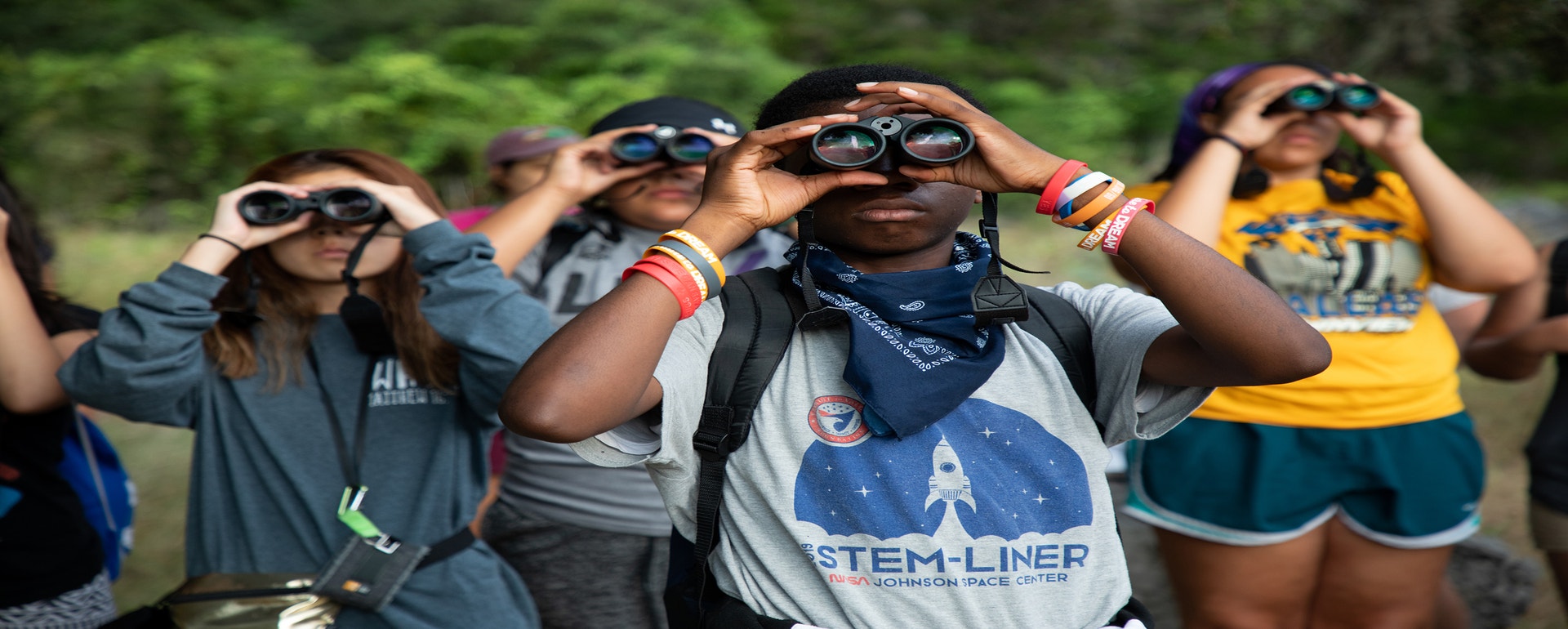
Virginia Rose found her passion for birds—and a new purpose in life—from the seat of her wheelchair. With Birdability, she's working to bring birding's benefits to others like her.
Audubon's EDIB Conservation Principles

Chief Equity, Diversity, Inclusion, and Belonging Officer (she/her/ella)

Vice President, Equity, Diversity, Inclusion, and Belonging

Senior Director of Strategic Initiatives, Equity, Diversity, Inclusion, and Belonging

Senior Director of Strategic Initiatives, Equity, Diversity, Inclusion, and Belonging

Program Manager, Equity, Diversity, Inclusion, and Belonging (she/her/hers)

Program Manager, Equity, Diversity, Inclusion, and Belonging (she/her/hers and they/them/theirs)

Senior Associate, Equity, Diversity, Inclusion, and Belonging Strategic Initiatives

Executive Assistant, Equity, Diversity, Inclusion, and Belonging
Learn more about pronouns and why we're including them in our bios here.





Audubon's Employee Resource Groups (ERGs) are voluntary, employee-led, organization-sponsored groups that are open to all employees. ERGs are managed through the EDIB department and are structured with direct ties to Audubon’s priorities and objectives. Our ERGs create an inclusive, supportive, and empowering environment where employees can connect, collaborate, and develop personally and professionally. They foster a sense of belonging and provide a voice for employees across the organization
Audubon is committed to cultivating a community workplace that is free of discrimination based on gender identity and expression, where all of our flock feels welcome and seen. To that end, we implemented a voluntary initiative for employees—straight and cisgender, and LGBTQIA+ alike—to proactively share their pronouns in email signatures and interactions to create a more affirming workspace. We also have a suite of policies and materials to help support transgender, nonbinary, and gender nonconforming staff members before, during, and after their transition while working for Audubon. These policies also outline the obligations of Audubon’s Human Resources department, supervisors, and other staff and provide guidance and resources to all employees to support our colleagues during their gender transition.

Are you passionate about environmental and climate justice and conservation? We want to work with you! Check our careers page for information and links to our many opportunities, including full-time and part-time work, paid fellowships, and paid internships.
Across the country Audubon is helping create the movement of the future.
Careers: If you share our vision of an equitable and diverse conservation movement that provides a deep sense of belonging for all, we want to work with you. To see and apply for our open positions, check our careers page.
Community Science: As part of Audubon’s commitment to equity, diversity, inclusion, and belonging we have transitioned from using the term “citizen science” to the more inclusive term “community science.” No matter where a volunteer was born, or how they came to the United States, we value their contribution to our science and conservation programs. To learn more about our community science opportunities, visit our community science page.

Audubon welcomes everyone who finds delight in birds and nature. No matter where a volunteer was born, or how they came to the United States, we value their contribution to our science and conservation programs.
Let us send you the latest in bird and conservation news.
